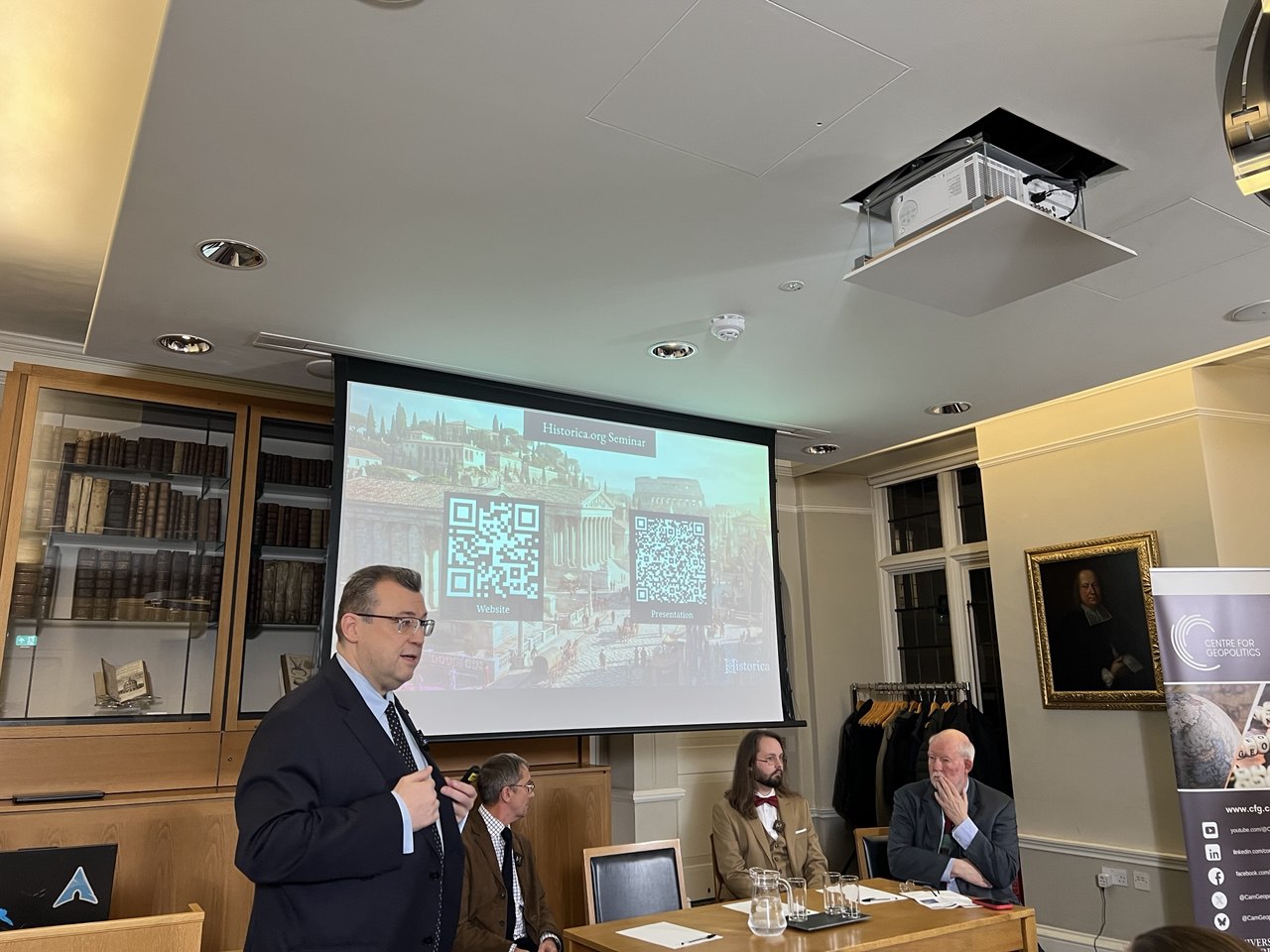Historica's Seminar at the University of Cambridge
On 30 November, the Historica team comprising Alexander Tsikhilov, Fedor Ragin, Mikhail Tsikhilov and Anastasia Serbinova led a seminar at the University of Cambridge and shared Historica Foundation's project ideas with the local academic community. Collaborating with PhD students and professors, the team shared visionary project ideas revolving around the Digital Footprint of Human History.
This seminar attracted a diverse audience, including representatives from Cambridge Digital Humanities, reflecting the interdisciplinary nature of the discussions. Coordinated by the University of Cambridge's Center for Geopolitics, this event served as a bridge between academia and innovation, facilitating a dynamic exchange of ideas.
Historica's mission, in turn, aims to serve science, education, culture, and entertainment. Historica's commitment to this vision is unwavering as they seek to contribute to a deeper understanding of our collective past. For a closer look at Historica's groundbreaking ideas, find the link to our presentation below.




.webp)
